#Thomas Konstantinou
Explore tagged Tumblr posts
Text
Saw this Barbie meme spreading around Twitter today and it got me thinking about the Vendetta cast 😆 So, here we are!

Barbie
Rin, Santana, Luka, Grandpa, Grandma, Yvette, Azami, Thomas
Ken
Ash, Skylar, Takashi, Jackal, Viktor, Cara, Konstantin (Sequel MC’s big brother)
Well, Ash can kinda work for both Barbie and Ken, but in the end I choose Ken 😂 How about your MC? Which one would they be, Barbie or Ken? Feel free to let me know in the replies or in reblogs 🥰
#meme#full cast ros#ro: ash#ro: rin#ro: santana#ro: skylar#char: viktor#char: luka#char: jackal#char: grandpa#char: grandma#char: takashi#char: yvette#char: azami#char: cara#char: konstantin#char: big brother#char: thomas#if: vendetta#if vendetta#vendetta if#if game#if wip#dashingdon#choicescript#hosted games#choice of games#cyoa#cyoa game#interactive fiction
216 notes
·
View notes
Text
youtube
Thomas Sowell's greatest insight | Konstantin Kisin
Konstantin Kisin: The single line that has made the greatest impact to my understanding of the world is from Thomas Sowell who, to me, is one of the greatest modern thinkers. "There are no solutions, only trade-offs."
You're not going to solve climate change you're not going to solve anything. You can make adjustments and - you know this much better than I do from being in government - every policy has a trade-off and very often, I think always actually, the reason that issues become difficult and controversial is precisely because the trade-offs are as bad as the solution, quite often. And you have to pick very carefully how exactly you calibrate your solution to avoid causing a lot more damage than you're trying to prevent.
And we've completely lost the ability to see that nuance. Everything now is seen as-- you know, we have this conversation in this country all the time. If Labour are in, the reason the NHS is broken is because Labour's broken it. If the Conservatives are in, it's because the Tory, Tory Cuts or whatever. No one seems to understand that like all of these problems are eternal. They're gonna go on forever. They're not solvable. No one's going to solve the NHS. No one's going to solve climate change. No one's going to solve anything.
What we can do is tinker at the edges and improve certain aspects of it, at the cost of others. At the cost of others. This was exactly - and you and I talked about this last time - what happened over COVID. People forgot that safety has trade-offs. That freedom has trade-offs. This is what no one wants to say. No one wants to say, "yes, freedom of speech has the consequence that some guy is gonna be insulting to someone else online, and someone might get upset." But that is the price we're willing to pay because we want to live in a free society.
Yes, not locking down the country may, may, we don't know, may have caused more people to die, but locking down the country also caused more people to die. So, which one of those do we want, how do we calibrate that policy.
We've completely lost the ability to have those conversations, which is why I think it's really important that we we try to bring that idea back. There are no solutions. There just aren't. You know this. Am I wrong about this John?
John Anderson: No, you're absolutely right. And the other great problem though, is that a good government reflecting a good society recognizes, not just that there's no absolute answer to anything, but that you actually have to be able to manage many difficult issues at any given time. You and I have to do that in our own personal lives. And so do governments. And so, what we're reducing politics to is sort of a series of one-trick pony shows where there's a crisis here and that's the only thing we'll talk about. It's not just that there are trade-offs, we're ignoring a whole lot of other problems which will swamp that one if we don't pay them attention as well.
Kisin: That's right.
#Konstantin Kisin#Thomas Sowell#Black History Month#John Anderson#trade offs#no solutions#there are no solutions#only trade offs#compromises#priorities#religion is a mental illness
6 notes
·
View notes
Text
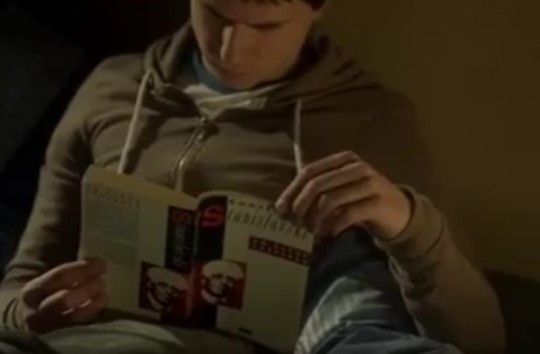
An Actor Prepares by Konstantin Stanislavski
Fresh Meat: Series 1 Episode 4
5 notes
·
View notes
Text
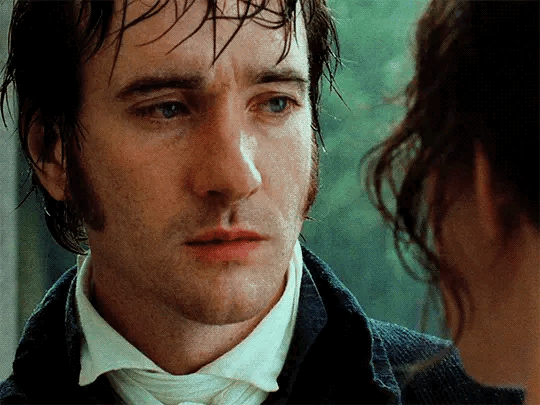
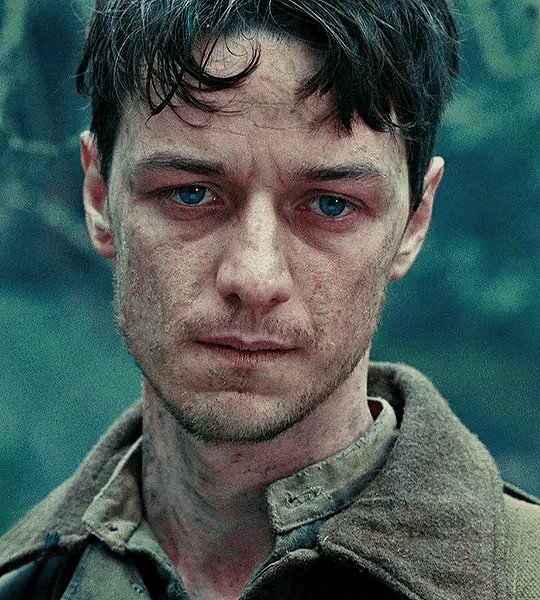
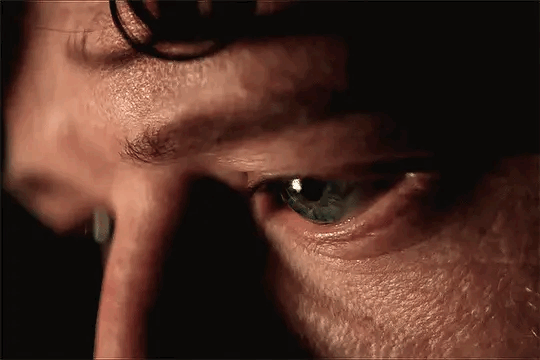
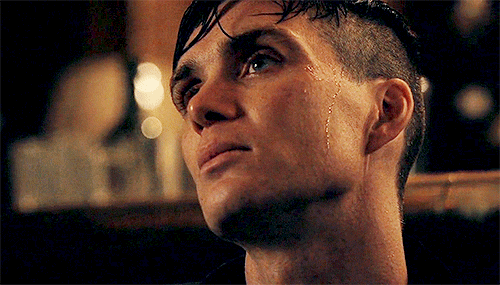
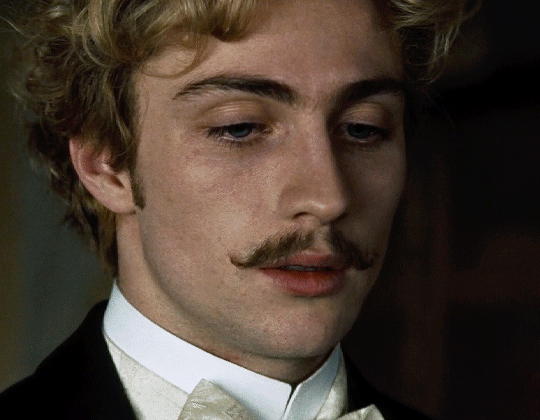

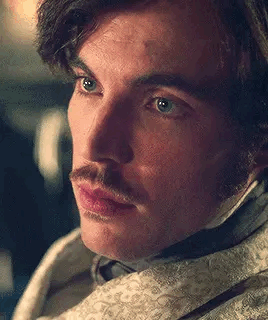
Deep and sad eyes of lovers..
Pride and Prejudice - Mr Darcy
Atonement - Robbie Turner
War and Peace - Andrei Bolkonsky
Peaky Blinders - Thomas Shelby
Anna Karenina - Alexei Vronsky
Anna Karenina - Konstantin Levin
Victoria - Prince Albert
#pride and prejudice#mr darcy#matthew macfadyen#atonement#james mcavoy#war and peace#war and peace bbc#james norton#anna karenina#domnhall gleeson#peaky blinders#cillian murphy#aaron taylor johnson#victoria#tom hughes#british actors#period drama#periodedit#gentlemen#period drama lover
526 notes
·
View notes
Text
youtube
This was a fascinating video on the evolution of American acting from older, theatrical 'representational' styles to the more modern, naturalistic 'presentational' style.
A large part of it is dedicated to breaking down the history of the extremely poorly defined term 'method acting', outlining the different theories of acting of Konstantin Stanislavski with his 'System' and the interpretations put on it by his American followers such as Lee Strasberg and Stella Adler, and how they differ from the modern pop-culture conception of 'method acting'. It's fascinating stuff - I did not realise just how much Stanislavski's ideas have affected the way we think about acting, literature etc. (dude invented the word 'subtext'!).
But in Thomas Flight's view, he's bringing these up in part to deflate them - he's ultimately arguing that, instead of a specific new method of acting being introduced, it's more that the goals of acting changed as the style of film in general changed. There are many routes to a naturalistic performance, but you have to want to do that in the first place, and older films wanted a more theatrical style.
Besides just being an interesting thing to learn about lol, the big question when I look at the theory of acting is how do you apply it to animation, since that's my field lol. 'Acting' is a big part of animation, but it differs in one big way, which is that it's much slower and more deliberate. I don't want to claim that there's no intuitive aspect to it, if anything you gotta learn all the technical stuff (timing, spacing, weight, overlapping action etc.) so well that you don't have to be constantly thinking consciously about technical stuff and can focus on letting the performance flow and feel natural... but still, a lot of the ideas expressed about imagining inhabiting the scene, getting into character etc. happen at a remove from putting lines down on the paper/screen. In animation just getting to the point of 'moving like a person', the absolute baseline of real life acting, is an effort in itself!
Still, knowing about the different styles and theories of acting is helpful. What is it about a character's expression that tells us that there is something that they're not saying, and tells us to infer some particular emotional context behind their words? A lot of it has to do with 'voice acting' stuff - cadence, intonation, hesitation. Then there's the way they move, stuff like how much space they take up, how energetic they are, how much their centre of gravity moves around. The gaze, where they're looking and how their eyes move around, is a huge part of it.
A film actor probably is doing a lot of this intuitively. I'm sure there is some conscious thought about it but the link between brain and muscles is so strong that you can be moving your eyes before you've had time to fully think through 'I should look over there to communicate what's on my mind'. With an animated character, every motion requires you to think about start and end poses, what the arcs are, follow-through, how many drawings to give it, etc. etc. You're simulating the 'physics' of the animated world and trying to convey the emotion of the character all at once. But you can still absolutely have an expressive, naturalistic performance in animation - and all these extra things you control (abstraction, simplification, etc.) give you more expressive tools as well which aren't available in live action.
I'm not nearly at the technical level of drawing and animation where I can really apply all these ideas yet, but it's good to know what's on the distant mountain...
46 notes
·
View notes
Text

(Wonderful picture is from @compelledcurator. Icon is by @thegracefallen)
About.
Hello! I'm JD or Jay, he/she/they, and 22.
This is a multifandom/multimuse blog. Crossovers, AUs, OCs, anons welcome.
Main blog is @warlocknottheantichristdowling (likes, messages, and follows come from here)
Mid-low activity
I have about 3 years rp experience but had an unplanned 5 year hiatus, so thank you all for being patient with me!
None of the gifs I use are mine
I don't speak Spanish or Louisiana French, I use an online translator for any dialog with these, and I do not have DID nor am I bipolar, so I AM open to correction on my portrayals of The Moon Boys and of Bob. Please let me know how I can do better.
I’m 100% open to multiple threads, I love writing with y’all.
Threads: To many no such thing | Drafts: 17ish | Asks: 2
I only have mobile, so please bear with me. I can't cut threads, my text options are limited, and autocorrect is my nemisis at times. I also work, so while I do try to get decent replies out quickly, sometimes I don't have time to write or the muse is not cooperating (and I know ya'll are patient with me, and I appreciate it, my brain just makes me feel like I have to explain everything because you guys are awesome and I love you for putting up with me)
Mains 💙 :
@compelledcurator | @exxcrucior | @envenenna | @thegracefallen
Updated: 5/14/25
Rules and Character Bios are under the cut
Rules are basic: Be nice, ask don’t assume , and no smut.
Raguel:
AKA Angel, Ragsy
FC is Will Estes
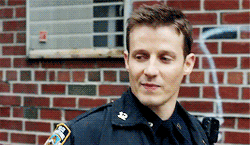
Raguel is the youngest of the archangels, known as the archangel of justice, vengeance, and harmony. He left heaven before Gabe did, and after the Flood, he cut all ties with his father and siblings. He spent most of his time acting as a guiding voice to judges until the the late 19th century when he learned many would no longer listen to him. Then, he turned to aiding the police force. His current and true vessel is a young New York cop named Angel Raguel. The man was fatally wounded and when the archangel asked to use him as a vessel, the officer agreed but asked Raguel to let him die. Raguel agreed. Things were rocky with the officer's siblings for a while, but eventually he considered them his own (For my sanity I’ll list their names now: Adam Mitchell, Taylor Ralph, Gabrielle Amanda). During his first 2 years in this vessel Raguel married a young woman who later died giving birth to their son Konstantine. Raguel has now been with the NYPD about 10 years.
Konstantine:
AKA Konny, Tinman, mini-Angel
FC is Thomas Brodie-Sangster

Konny is Raguel's younger and only surviving son. (I will eventually get into all details but I like surprises) He is an Archnephilim and like his cousin Jack he reached adulthood immediately after birth. Due to trying to avoid suspicion, his father tells most people Konny is his deceased wife's brother who came to live with him after her death. The only people who know Konstantine is Raguel's son are his siblings and his work partner. He is a sassy trouble maker, but he tries very hard to help others and please people he likes. He is actually very selfconscious, but hides it well. That's all I have for now.
Jesse Turner: Bio will be added eventually
Abigail Richards:
FC is Alexis Bledel

I'll post her boo soon I promise
Stiles Stilinski: Bio eventually
Grey:
FC is Andrew Garfield
AKA Spenser Greyson McUsic III, Grisgris, Spense

Species: Mutant
Height 6'0
Age 29
Grey is by basic definition a hired gun with his own idea of justice. He lives with 3 other mutants (Jacob age 22, Lucas age 14, and Julian age 11). His powers consist of creating portals for travel to alternate universes (most control over), places in his current universe (good control if he's not distracted), and across time (very little control). He can also create small portals to pocket dimensions he uses for storage . He's trained in physical and psycological torture, hand-to-hand combat, and knows how to use most weapons. He is obnoxious by nature, cares deeply and dangerously for those he holds dear, and takes pleasure in the suffering of those he considers a threat and enemy. He is a broken man, with a childhood he typically doesn’t share. (DM me if you need more info). He's from the X-Men '97 Universe but considers the MCU his Home Universe. He lives there in New York. Also, he's of Irish decent and suposedly a good Catholic (nobody take offence, I'm Catholic so please no hate.) That's all I have for now.
Jacob:
FC is Dylan O'Brian

AKA: Jacob Isaac McUsic, Jake, Mom (by Grey), Darling (also by Grey)
Age: 22
Height: 5'10
Species: Mutant
Basic about: Jacob is the second eldest of the McUsic household. His powers constist of very strong technokineses and technopathy, typically used to keep Grey's 'business' running smoothly. He's kind hearted, but very stern if the need arises, and is probably the only person capable of stopping Grey from being a stupid jerk. Been with Grey since he was 7 and Grey 14. He's just started med-school. That's it I guess.
Lucas:
FC is Noah Schnapp
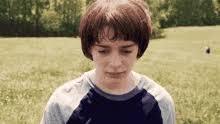
AKA Lucas Adrian McUsic, Lu, Sweetheart (by Grey)
Age: 14
Species: Mutant
Lucas is the second youngest of the McUsic household and newest member of the family. His power consist of the ability to drain life force then either transfer to others or himself for healing purposes. It's done through skin on skin contact and highly unstable at the moment, heavily influenced by his emotions. He accidentally killed his mother with it. Grey found him about a year after that and took him in. He's super close to Julian, but has a hard time getting close to anyone outside his family. He's very quiet and slow to open up to strangers. He's been with Grey for a year now.
Julian:
FC is Colin Ford

AKA Julian Arthur McUsic, Glowstick (by Jacob), Angel or Angelface (by Grey)
Age: 11
Species: Mutant
Julian is the youngest member of the McUsic family. His powers consist of very strong empathy (still developing) and bioluminescense. He's a very bubbly child that adores Greyson and Jacob both and has a very special relationship with Lucas. He's friendly and very generous and if he really likes you he will be all over you. He doesn't seem to understand personal space. He's been with Grey and Jacob since his parents were killed when he was 2. And yes, it is canon that this little disaster worships Khoshu and the Catholic God. That's it for now.
Moon Knight: I’ll eventually get a bio up.
Bob Reynolds: see above
Warlock Dowling: see above
Heracles Bron:
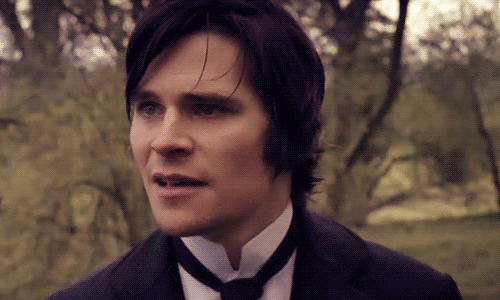
FC: Hans Matheson
AKA: Hercules (formerly), Herc
Main Verse: PJO post Mark of Athena, but 100% open to crossovers
Species: demi-god (son of Zeus; formerly a minor god)
Age: 3,111 (yes I did the Math and Googled it), appears to be in his 20's or 30's
MReunited with his mortal half and stripped of godhood by his own guilt-ridden prayer, Heracles believes himself to simply be a modern halfblood with a case of amnesia. He knows his name and vaguely remembers fragments of his past, with dates, names, and most other details missing, including who his parents are. He has retained his godly strength, but like all demigods suffers from ADHD and dyslexia. He has extensive knowledge of Greek and Roman Mythology, and remains skilled in both archery and wrestling. Other deities will still recognize him, but he refuses to aknowledge the possibility that he is Heracles of Ancient Greece. He is rather friendly, although somewhat reserved and often lost in his own thoughts, and he is extremely loyal. Inspite of his kind nature, however, he has retained his temper; given that his pride much less prominent now, that temper is rarely seen. Hope this makes sense.
#(I’m not good at backgrounds I’m sorry)#About#spn rp#Supernatural rp#Marvel rp#Good omens rp#pjo rp#moon knight rp#toa rp#hoo rp
7 notes
·
View notes
Text
Germany remains a central focus of Russian disinformation efforts, and Kremlin-backed campaigns continue to grow in scope and intensity.
That was the warning that senior security officials and lawmakers issued this week during a public session of the German parliament's committee responsible for overseeing the country's intelligence agencies.
"We have long recognized the threat to Germany from foreign influence and hybrid warfare, especially from Russia," said Konstantin von Notz, a Green Party lawmaker and the committee's chairman.
"However, we are now witnessing a new level of intensity, and this development is deeply worrying for all of us."
Germany perceived 'as an enemy' by the Kremlin
Heads of Germany's intelligence services echoed von Notz's sentiments.
As Germany has emerged as one of the staunchest supporters of Ukraine since Russia launched its full-scale invasion in 2022, the Kremlin has increasingly perceived Germany "as an enemy" and treated it as one, said Bruno Kahl, president of Germany's foreign intelligence agency, the Bundesnachrichtendienst (BND).
Kahl explained that Russian President Vladimir Putin has long waged a "hybrid war" against countries in the West to "create a new world order." To achieve this end, Putin is using Russia's secret service agencies "as the spearhead in the fight against the West, with a state mandate, with all the means at their disposal, without legal restrictions and, above all, without any conscience."
This has led to a "dramatic increase in the number and quality of cyberattacks by Russian state actors and their proxies," Kahl added.
At the same time, cyberattacks are just one method that Russia is using to assert its influence.
Thomas Haldenwang, president of Germany's Federal domestic intelligence agency, warned of "influence operations" to spread pro-Russian disinformation: coordinated efforts to sway public opinion that blend cyber activities with the spread of disinformation.
He cited the example of one such campaign, dubbed "Doppelgänger," which was recently uncovered and involved cloned websites, fabricated articles, and misleading social media posts that mimicked established European media outlets to push pro-Russian narratives.
Growing influence of pro-Russian voices
Researchers say the majority of pro-Kremlin disinformation campaigns targeting German audiences have one of three objectives, researchers say: weakening support for Ukraine, tarnishing NATO's image or amplifying pro-Russian voices across Germany.
"We see that this strategy is gradually achieving its goals, and the public debate in Germany is increasingly shifting in a direction that serves the Kremlin's interests," said Felix Kartte, a political analyst and senior fellow at Germany's Mercator Foundation.
"Two parties that represent pro-Kremlin positions, the AfD and the Sahra Wagenknecht Alliance, are now also getting significant attention in traditional media," he told DW. Both the far-right AfD (Alternative for Germany) party and the left-wing nationalist Sahra Wagenknecht Alliance (BSW) achieved record results in recent state elections.
How to combat Russian influence
So far, Germany has failed to develop "a comprehensive government strategy that recognizes, analyzes and effectively counteracts the campaigns" launched by Russia, Kartte said.
He stressed that such a strategy to counter Russian influence operations would need to address the issue on multiple levels.
"This would include better regulation of online platforms, strengthening independent media — especially local journalism — and better analysis of the financial support of prominent pro-Kremlin figures in Germanyby security and intelligence agencies," he said.
11 notes
·
View notes
Text
Ship Name Tag
Thanks for tagging me, @willtheweaver! :D
Rules: invent ship names for your OCs.
Phileo (Phil/Leo) is the easiest one
Alec/Davit has several possibilities; Dalec is the funniest
Abi/Irímé: Abimé? Irabi? Neither sounds good
Rusudan/Konstantine: Rusutine? Konsudan?
Gilbert/Thomas could be Gilmas or Thobert
Tagging @winterandwords, @writingamongther0ses, @sleepyowlwrites, and anyone else who wants to do this! :D
6 notes
·
View notes
Text
Very honored to have my painting “The World Is Waiting” included in the prestigious Fabriano Watercolour 2024 Biennial Exhibition in Italy . My thanks to Giorgio Pelligrini and Konstantin Sterkhov for the nomination
By Thomas W Schaller
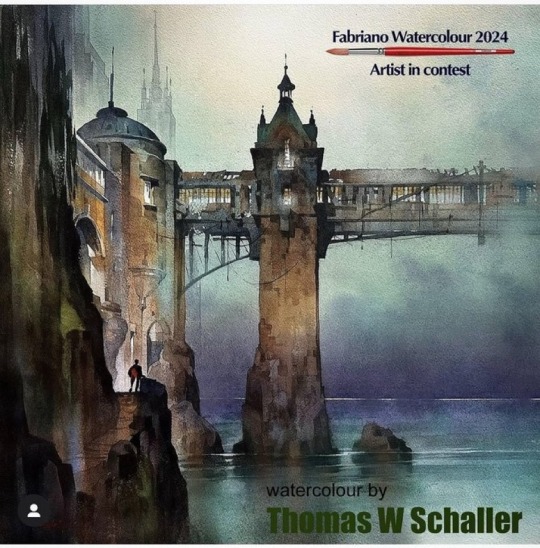
#Thomas W Schaller #watercolour artist #original art #artist painter
#art #xpuigc
7 notes
·
View notes
Text
Ranked Ballet Performances
I've seen quite a few live shows and I have thoughts on all of them, but instead of sharing them, I'm just going to rank them from my favorite to least favorite:
La Bayadere: Viktoria Tereshkina and Kimin Kim
Giselle: Svetlana Zakharova and David Hallberg
La Bayadere: Ekaterina Kondaurova and Timur Askerov
Raymonda: Ekaterina Kondaurova and Danila Korsuntsev
Don Quixote: Marianela Nunez and Carlos Acosta
Le Corsaire: Ekaterina Kondaurova, Andrey Ermakov, Kimin Kim
Paquita: Viktoria Tereshkina and Timur Askerov
Swan Lake: Devon Teuscher and Marcelo Gomes
Raymonda: Oksana Skorik and Timur Askerov
Giselle: Skylar Brandt and Joo Won An
Don Quixote: Skylar Brandt and Herman Cornejo
Romeo and Juliet: Gillian Murphy and James Whiteside
The Nutcracker: Mariko Sasaki, William Bracewell, Isabella Gasparini, and James Hay
Giselle: Gillian Murphy and Thomas Forester
Swan Lake: Isabella Boylston and Alban Lendorf
Swan Lake: Devon Teuscher and Aran Bell
Giselle: Elizaveta Gogidze and Olekseii Kniazkov
Little Humpbacked Horse: Anastasia Kolegova and Maxim Zyuzin
Sleeping Beauty: Sarah Lane and Herman Cornejo
Paquita: Nadezhda Batoeva and Xander Parish
Harlequinade: Skylar Brandt and Daniil Simkin
Whipped Cream: Sarah Lane and Daniil Simkin
Le Corsaire: Maria Khoreva, Konstantin Zverev, and Kimin Kim
Paquita: Maria Khoreva and Konstantin Zverev
I think I got them all lol. I didn't include non-ballet performances such as Bourne's Swan Lake, Alvin Ailey, and Riverdance.
23 notes
·
View notes
Text

By: Alex O'Connor
Published: Jun 19, 2024
In the apocryphal Gospel of Thomas, Jesus condemns those who “(either) love the tree and hate its fruit (or) love the fruit and hate the tree”. A regular critique of the nominally religious is that they claim to believe in, say, Christianity, but fail to act in accordance with its demanding message of love and compassion. They love the tree, but can’t quite swallow the fruit. More recently, however, a strange reverse phenomenon is emerging: a class of thinkers who, unable to rationally assent to the actual truth of Christianity, and yet disillusioned with the politics of “new atheism”, and fearful of the various religious and pseudo-religious ideas that have filled the vacuum it created, find themselves in the tough spot of being hungry for the fruit but unable to believe in the existence of the tree.
These so-called “cultural Christians” are appearing in droves: Douglas Murray, Tom Holland (not that one), Konstantin Kisin, Jordan Peterson (depending on what you mean by “Christian” and “cultural” and “and”); even Richard Dawkins — the archetypal modern atheist who has done more to confront organised religion than perhaps any other identifiable person in a generation — happily adopts this paradoxical moniker for himself.
Paradoxical because, of course, Christianity is more than just an affinity for evensong, disappointment with secular architecture, and suspicion of Islam. St Paul wrote in no uncertain terms to the Corinthians that “if Christ has not been raised, our preaching is useless and so is your faith”, and the vague, à la carte approach to the religion displayed by the “cultural Christian” which doesn’t seem to care about, much less affirm, the historicity of the extraordinary events of Easter Sunday is the kind of attitude that would see you condemned as heretical by the founders of the orthodox church.
Yet Christianity is experiencing a popular makeover, from an affirmative doctrine of truth-claims to a sort of protective garment to be worn as a practical measure against the equal and opposite destabilising forces of radical political religiosity and cynical nihilism which continue to claw away at the souls of those without a firm spiritual conviction.
This metamorphosis of the Christian religion in is many ways indebted to Tom Holland — not the actor, though perhaps an actor, in that he seems content to live as if Christianity were true — whose “Dominion” thesis has convinced a not insignificant number of intellectuals that the bulk of our celebrated Western ethics is ultimately the product of Christianity, an ideology which has so successfully embedded itself in our culture that we do not even notice it anymore.
This leads our cultural Christians, often those with a special interest in safeguarding Western civilisation, to cozy up to an ideology that they can’t quite adopt without qualification due to their rather inconvenient conviction that it isn’t true.
Enter Ayaan Hirsi Ali. Re-enter, I should say, as this brave apostate from Islam won successful prominence as an atheist writer and speaker for many years since the early 2000s, before recently announcing that she had embraced Christianity. Indeed, she had originally been scheduled to participate in that famed discussion in Washington D.C. in 2007 which gave birth to the “four horsemen” of new atheism — Richard Dawkins, Christopher Hitchens, Daniel Dennett, and Sam Harris. So news of the “almost fifth’s” conversion was met with widespread surprise, joy, and speculation.
Perhaps the most widely read response came from Dawkins, in an open letter whose first sentence contained a rather less than charitable: “Seriously, Ayaan? You, a Christian? You are no more Christian than I am.”
Why? Because Hirsi Ali’s article, while passionate and detailed, suffered from the exclusion of anything resembling an argument for the existence of God, or for the theological supremacy of the Christian religion over others (or even over atheism). Instead, it is a political treatise: it begins with her experiences as a Muslim, touching on 9/11, the Muslim Brotherhood, and antisemitism, before asking: “So, what changed? Why do I call myself a Christian now?”
She answers: “Part of the answer is global. Western civilisation is under threat from three different but related forces,” which she identifies as Russian/Chinese authoritarianism, Islamism, and wokeism. All of which are distinctly political considerations and so hardly serve as a theological defence of Christianity. Then, referring to Tom Holland, she tells us that the “story of the West” is a civilisation built on the “Judeo-Christian tradition”. That is to say, she is ticking all the boxes of a merely cultural Christian.
“Strangely, then, they could find initial agreement on one point: their being just as Christian as each other.”
Yet she later writes, as if anticipating this objection, “I would not be truthful if I attributed my embrace of Christianity solely to the realisation that atheism is too weak and divisive a doctrine to fortify us against our menacing foes.” It’s a promising interjection, which seems to ready us for an apolitical testimony that might justify her exclusion of the “cultural” in labelling her new Christian identity.
Here, Hirsi Ali begins to describe her personal struggles as an atheist. “I have… found life without any spiritual solace unendurable,” she writes, claiming that the “God hole” left behind after her deconversion was not filled with reason and intelligent humanism, as atheists like Betrand Russell had predicted, but instead left painfully vacant.
“In this nihilistic vacuum, the challenge before us becomes civilisational,” she continues. “We can’t withstand China, Russia and Iran if we can’t explain to our populations why it matters that we do.” In explaining, then, her reasons for becoming Christian apart from her desire to defeat her political foes, she tells us that she was struggling with a nihilistic vacuum that was… insufficient for defeating her political foes. Once again, the motivation seems political.
Thus Richard Dawkins and his assessment, “you are no more a Christian than I am”. The funny thing is, Ayaan Hirsi Ali endorses this sentiment. Dawkins has, of late, been airing his misgivings about gender theorists and Islamists, and constantly reaffirms his admiration for Christian art, architecture and music. These political and aesthetic preferences inspired her to refer to Dawkins at one point as one of “the most Christian” people that she knows. Strangely, then, they could find initial agreement on one point: their being just as Christian as each other.
This uneasy equilibrium provided the mise en scène for an eagerly awaited conversation between the two, which took place in Brooklyn last month. Dawkins tells us at one point that he showed up fully prepared to explain to Hirsi Ali why she is not a Christian: “The idea,” he says, “that the Universe has lurking beneath it an intelligence a supernatural intelligence that invented the laws of physics it invented mathematics […] is a stupendous idea (if it’s true) and to me that simply dwarfs all talk of nobility and morality and comfort and that sort of thing.”
He was, therefore, taken quite unawares, as were many of us, when he asked (or rather told) her, “You don’t believe Jesus rose from the dead, surely?” and she confidently replied, “I choose to believe that Jesus rose from the dead. And that is a matter of choice.” This, for Dawkins (as for me), changes the game. While throughout the event she had no hesitation in repeating her political grievances, in New York, she finally addressed the truth claims of Christianity, and appeared to confess a belief in them. “I came here prepared to persuade you, Ayaan, you’re not a Christian,” Dawkins told her, before correcting himself: “I think you are a Christian,” and — being Richard Dawkins — he added, “and I think Christianity is nonsense.”
This extraordinary event began with Hirsi Ali recounting her conversion: “I lived for about a decade with intense depression and anxiety self-loathing. I hit rock bottom. I went to a place where I actually didn’t want to live anymore but wasn’t brave enough to take my own life.” Through prayer, she managed to escape that hole. “My zest for life is back,” she declared to a healthy applause, indicative of the one thing that everyone can agree on: it is wonderful to hear that Ayaan is happy again.
She looked at Dawkins and shrugged slightly as she finished her personal account. And the audience laughed. I did think there was something comical about following such a moving story of escape from depression and anxiety with, as Dawkins did: “But do you really think Jesus was born of a virgin?” Dawkins, though, can hardly be blamed: as touching as Hirsi Ali’s story may be, if he is right that God’s existence is a scientific question, then we should remember that bringing personal narrative into the laboratory is as inappropriate an approach as bringing a microscope into a poetry seminar. It should be no insult to say that her emotional struggles are irrelevant to the question of theism vs atheism.
As Dawkins himself put it, responding to Hirsi Ali’s fear that an atheistic universe doesn’t offer us any way to connect with each other and the cosmos: “Suppose it were true that atheism doesn’t offer anything. So what? why should it offer anything?” Further applause.
“Faith offers you something, obviously. That’s very very very clear,” he says at one point. “But it doesn’t make it true. It doesn’t make the existence claims of Christianity true.” Again, there was an applause. Given that such a claim is hardly extraordinary or controversial, the clapping seemed to be less in support of the point, and more of Dawkins’s willingness to make it plain.
It is worth remembering that believing something for non-rational reasons is not unusual. Our beliefs are quite often formed by our surrounding environment, rather than some kind of perfect logic and analysis of abstract syllogisms. Most people know this. Hirsi Ali is happy to admit it. You may think it imperfect, but it is not unique.
“The kind of Christianity adopted by Hirsi Ali goes further in asserting its truth, but not very much further in its justification.”
This extraordinary event began with Hirsi Ali recounting her conversion: “I lived for about a decade with intense depression and anxiety self-loathing. I hit rock bottom. I went to a place where I actually didn’t want to live anymore but wasn’t brave enough to take my own life.” Through prayer, she managed to escape that hole. “My zest for life is back,” she declared to a healthy applause, indicative of the one thing that everyone can agree on: it is good to hear that she is happy again.
After finishing this personal narrative, she could only look at Dawkins and shrug slightly. The audience laughed, in anticipation of something of a shift in tone. I did think there was something comical about following such a moving story of escape from depression and anxiety with, “But do you really think Jesus was born of a virgin?” Dawkins’s decision to do so, however, can hardly be blamed: as touching as his former colleague’s story may be, if he is right that God’s existence is a scientific question, then we should remember that bringing personal narrative into the laboratory is as inappropriate an approach as bringing a microscope into a poetry seminar. It should be no more an insult to say that Hirsi Ali’s emotional struggles are irrelevant to the question of God’s existence than it would be to say to say that scientific observations are irrelevant to the study of Keats.
As Dawkins himself put it, responding to her fear that an atheistic universe doesn’t offer us any way to connect with each other and the cosmos: “Suppose it were true that atheism doesn’t offer anything. So what? Why should it offer anything?” Further applause.
“Faith offers you something, obviously. That’s very, very, very clear,” he says at one point. “But it doesn’t make it true. It doesn’t make the existence claims of Christianity true.” More clapping. Given that such a claim is hardly extraordinary or controversial, this reception seemed to be less in support of the point, and more of Dawkins’s willingness to make it plain.
Yet it is worth remembering that believing something for non-rational reasons is not unusual. Our beliefs are quite often formed by our surrounding environment, rather than some kind of perfect logic and analysis of abstract syllogisms. Most people know this. Ayaan Hirsi Ali is happy to admit it. You may think it imperfect, but it is not unique to her.
This means that any surge in Christian interest we may notice among our public intellectuals is unlikely to be due to a renewed interest in Biblical scholarship or the figure of the crucified Nazarene. It is instead likely a product of their environment. Cultural Christianity, then, is in many ways a political movement disguised as a religious one, reacting not to arguments for God’s existence, but concerns about the practical shortcomings of atheism and alternative religions. The kind of Christianity adopted by Hirsi Ali goes further in asserting its truth, but not very much further in its justification.
Therefore, those celebrating some alleged resurgence of Christianity ought be cautious: it would certainly be a happy day for them if their favourite intellectuals began discovering a relationship with Jesus, but if they begin converting to Christianity principally as an ideological bulwark, we may witness the return not of a meek and mild community of believers, but of a more strong-armed, aggressive Christianity that has historically been a touch more controversial.
But Ayaan does seem genuinely transformed by her new faith: she looks happy, speaks humbly, and seems genuinely uninterested in point-scoring or winning any arguments. It troubles me not at all to admit that I found myself applauding her more than Richard Dawkins. It transpired in Brooklyn that her conversion, which at first appeared mostly political, was more a result of her personal battle with nihilism. This is hardly going to convince anybody else to become Christian, but such personal experience isn’t ever supposed to.
Atheists are often told that they are plagued with a “God-shaped hole”. Hirsi Ali appears to have developed for herself a hole-shaped God. But despite the probability of at least an element of motivated reasoning in this conversion, I’m genuinely happy for her. We should keep in mind, too, as her story evolves, that our ideas are the most unclear to us when they are new, and Ayaan is a new Christian. While we are all trying to work out what she really believes, she is probably trying to work out the same thing. She, however, has the unusual courage to do it out loud.
==
In short, Xianity has retreated even further from "my religion is true" to "my religion is useful." Of course, if that's the case, then I have just as much right to pick and choose the parts that are useful to me as anyone else.
We must also apparently address once again the absurd notion of "choosing to believe," usually levelled at atheists as an accusation that they simply choose not to believe. In one specific god, of course. An accusation that necessarily means the believer themselves "chooses" not to believe in all the other gods.
And its absurdity revealed by the challenge to choose to believe in goblins or fairies or Bigfoot. Or to choose to believe in another god - Ahura Mazda, for example - for five minutes.

It matters what's true. And Xianity isn't true.
#Alex O'Connor#political christianity#god shaped hole#hole shaped god#choose to believe#christianity#Ayaan Hirsi Ali#Richard Dawkins#truth#truth matters#cultural christianity#religion#religion is a mental illness
15 notes
·
View notes
Text
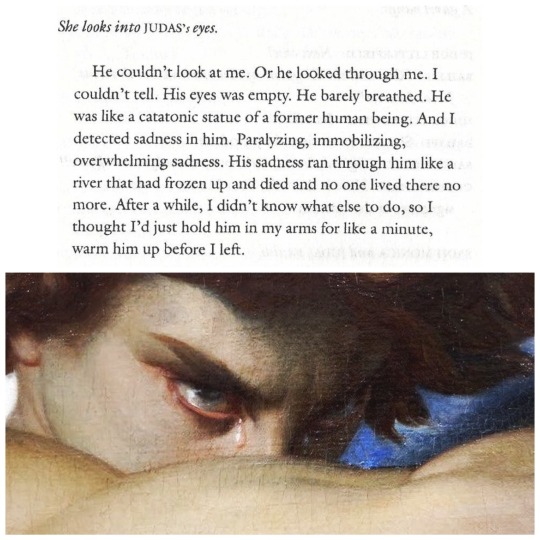
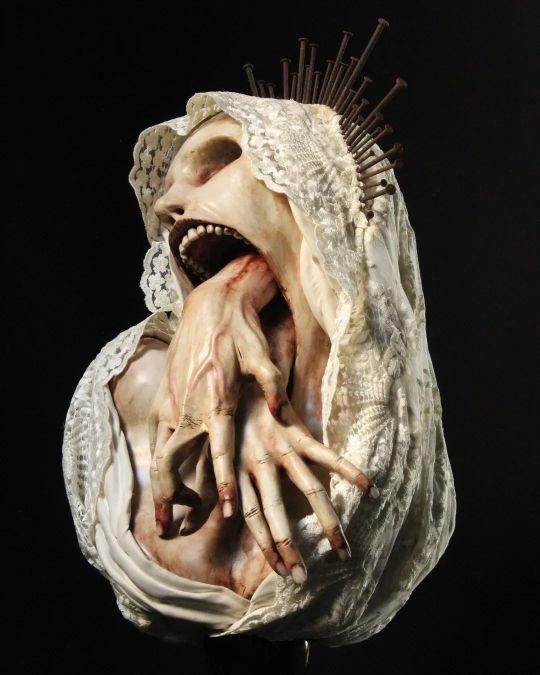
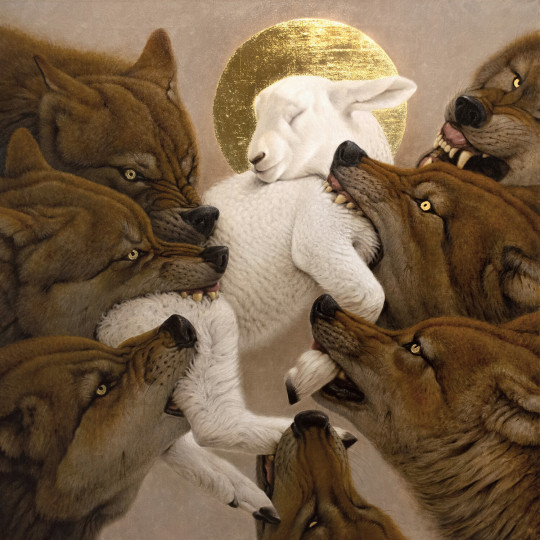
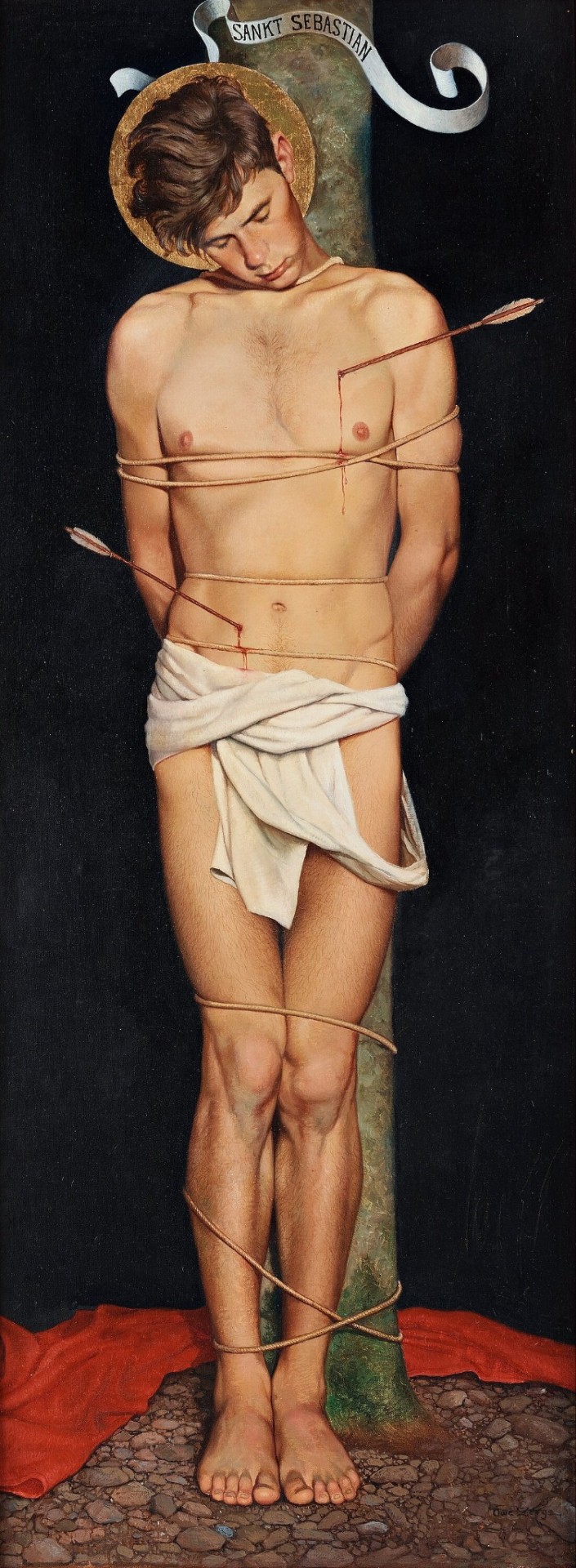

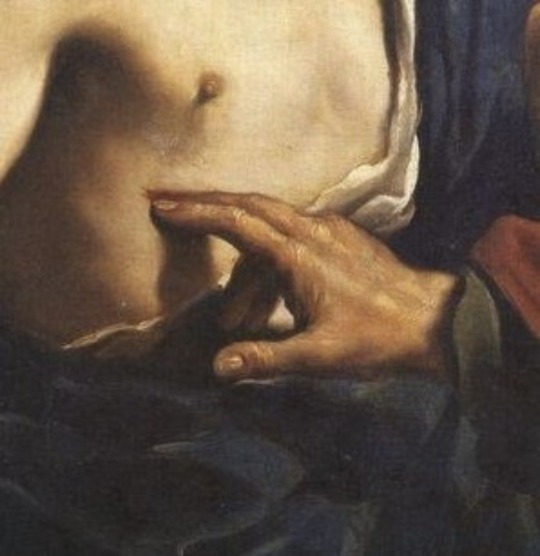
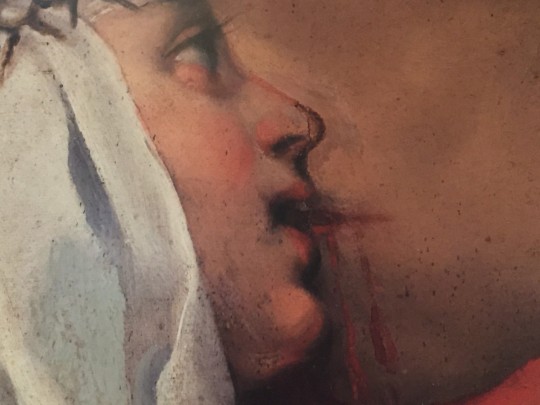
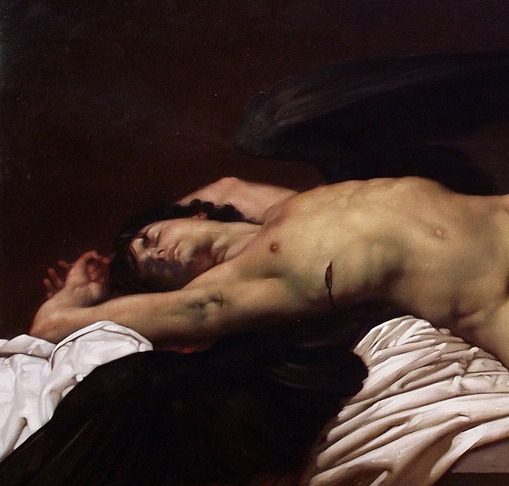
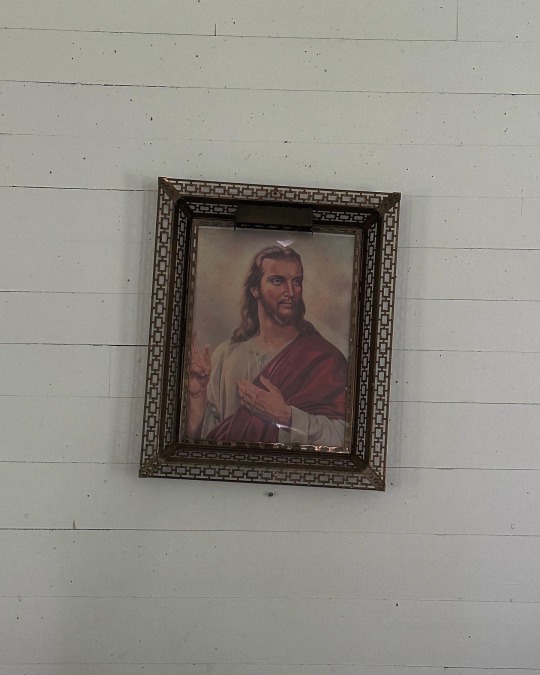
The Last Days of Judas Iscariot, Stephen Adly Guirgis || Agnes, Konstantin Korobov || Saint Sebastian, Owe Zerge || Arrows of Desire: How did St Sebastian Become an Enduring, Homo-erotic Icon? || The Incredulity of Saint Thomas, Guercino || Saint Catherine Drinks the Blood of Christ, Francesco Vanni
#web weaving#judas iscariot#korobov#stephen adly guirgis#saint sebastian#owe zerge#dark academia#quotes#poems and quotes#arrows of desire#homoerotic#nah they twinkified my boy#saint thomas#guercino#saint catherine#francesco vanni#christianity#loosely speaking
21 notes
·
View notes
Text
In which Zeus goes to the club and is confronted by a bunch of nerds
Inspired by some recent discussion on @irishironclad's tumblr. Thanks to @catkin-morgs-kookaburralover for coming up with the deciding plot twist!
The Sky-Father, Optimus Maximus, the Hospitable, the Protector of Armies, the Protector of Friendship, he of the Rains, the Storms, the Thunder and Lightning (commonly known as Zeus) yawned and stretched his shoulders. He felt like he had slept for a long time. Years, even. He checked the time, and promptly shot bolt upright. One thousand four hundred years??? That couldn't be right... except it was. At least his follower count was up to a four-digit number again. More than enough to get out of bed and perform some minor miracles. He'd beat that usurping half-godling yet. Zeus snuck a glance at his nagging old battleaxe Hera, but she was still deep in a coma, follower count so low that she was actually slightly transparent. Ha! Nobody loves a party pooper. Time to go out and have some fun with the mortals.
Marina had been dancing for several songs, when she suddenly noticed another dancer following her. He looked like a classical statue with his curly hair, elegant nose and buff body. His colours were perfect too: hair so dark it bordered on violet, skin olive-brown and clear, teeth white as snow. She threw herself into the beat, relishing the experience of having such a beautiful and skilled partner. The people around them even drew back a little, forming a circle for them to show off in. When the song ended, she made a flourishing curtsey, overdone to Gibraltar and back. He returned the favour as a small, ironic bow. Marina looked towards the bar, feeling out of breath. As if he could read her thoughts, he grabbed her elbow and steered towards a quiet corner where one could drink and talk. "That was awesome!" Marina said. "Are you a professional dancer, or something?" The unknown man looked almost affronted. "Certainly not! I employ them! ...or I used to." "You must be older than you look, then." He drunk deep from his wine glass instead of replying. Marina sipped her mojito, slightly uncomfortable with how openly he was looking her over. Sure, she had a good body and she knew it. Yes, she had made an effort to look sexy before coming to the club. But he didn't have to be so crass about it! "Who are you?" he asked abruptly. "Eleni", Marina lied with practised perfection. "And you?" "You can call me Dias." "All right, Dias, it was fun dancing with you." Marina left her half-drunk mojito on the table and went for the dance floor, trying to lose Dias in the crowd. Somehow, he stayed right beside her. The man seemed positively incapable of taking a hint. Marina danced her way back to the bar - not the quiet table of before, but the middle of the main bar, in plain view of everyone - and took out her cellphone. Before she could even pull up her sister's number, there was a small electrical shock to her hand, and the machine died. Marina looked up. Barely an arm's length away stood Dias, smiling cruelly, lightning playing around the fingers of his right hand. "Who are you?" Marina said breathlessly, without expecting an answer.
Stavros moved around nervously on his seat. Something was different tonight, he could feel it. Something was making it difficult to concentrate. Konstantin and Dimitrios seemed distracted, as well. Thomas was reciting their usual evening prayer, but without the usual presence of spirit. At the point where they would normally have segued into the Lord's Prayer, Thomas instead said: "Holy Spirit, please guide us. Holy Spirit, please lead us. Holy Spirit, please show us the way." Outside, Stavros thought. That back alley two blocks away. Something's wrong there. "The back alley behind the club," Konstantin said. Dimitrios stared at him: "You felt it too?" "Me too!" Stavros almost shouted. "We should probably go there," Thomas concluded. "Holy Spirit, keep guiding us. God, keep us safe. Amen. Let's be careful."
The summer night was hot and oppressive, with a hint of upcoming thunder. Stavros hung a little back, content to hide his slight form behind those of his brawnier friends. Neon signs flashed. Taxi cabs cruised the street. People walked by, most in flashier dress than their little boardgames-and-prayer-group, most talking and laughing out loud in the grip of intoxication. The little back alley seemed deserted by comparison. Closed and locked doors, shuttered windows, parked cars, some overflowing garbage bins. Directly behind the club was an unhealthy-looking oak tree, and beneath it they could see a man kneeling over a woman, pushing her down on the ground, lifting his hand as if to rip her dress off. "Stop!" Thomas called, and his voice seemed to echo between the walls of the narrow alley. The assailant didn't let go of his victim, but he twisted around to look at them over his shoulder. Pure beauty, Stavros thought. Pure hate. Pure evil. He immediately scolded himself: no human being is purely evil, just as nobody is purely good except Jesus. But his impression remained. "Get lost," Thomas said. "Leave her alone." The assailant sneered. "And who are you to command me?" he said. "I am Thomas, a servant of the Lord Christ," Thomas said simply. "I am Konstantin, a servant of the Lord Christ," Konstantin repeated. Dimitrios added his voice, and Stavros hurriedly stepped out of the other's shadow to face down this ancient evil would-be rapist. A corner of his mind insisted that he and his friends were being ridiculous, that they should attack the guy or call the police or something, not recite corny lines. Stavros repeated it anyway, and the guy fell back a little, as if he'd been struck. The woman took the opportunity to wiggle out and run away. Stavros didn't blame her. "And by that name you command me to be gone," the man said mockingly. "You said it," Thomas said calmly. "By the name of Jesus Christ, we command you to be gone." "Damn your Lord to Hell, and you with him!" "He's been there," Thomas said. "Now he rules it," Dimitrios added. The man in front of them let out a frustrated scream. Lightning struck the oak tree, and Stavros jumped back in surprise. When he'd recovered, the unknown man had disappeared. "Where did he go?" Stavros asked. "Behind these cars?" Konstantin suggested. "No, he's not here. Strange. He must have gotten away somehow." "Guys, that was wild," Dimitrios said. "We faced down a bad guy, and won. Woo!" "Where did the woman go?" Thomas said. "We should make sure that he doesn't catch her again." "I don't think he can," Konstantin said. "She ran past us towards the street, right? And he could hardly have gotten past us - he must have gone deeper into the alley." "And even if he got past us..." Stavros said. "Even if he did, she had time to get away into a taxi, or a restaurant, or something." "You're probably right," Thomas said. "All right, I know it's late, but how about we all go back to my place anyway? Have some more tea, give proper thanks to God, calm down a little. What do you say?" "Best idea you ever had, man," Dimitrios said. Stavros just smiled.
12 notes
·
View notes
Note
1, 3, 8, 15
1 - fave astronaut(s)
Astronauts: David Scott, Gus Grissom, Thomas Stafford, Christa McAuliffe
Cosmonauts: Sergei Krikalev, Vladimir Komarov, Konstantin Feoktistov, Alexei Leonov, Yuri Gagarin
3 - fave mission patch(es)
Apollo 13
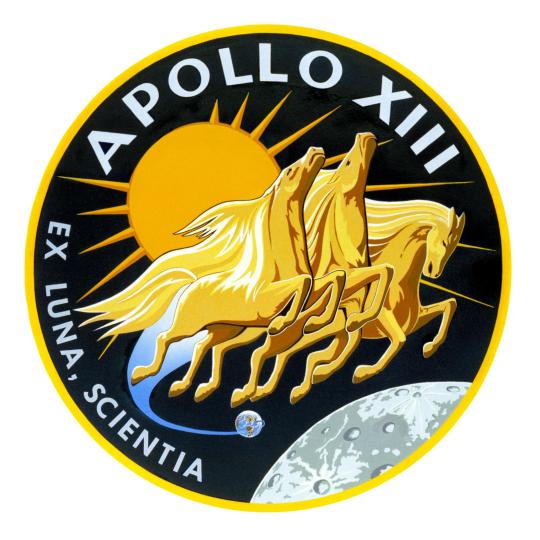
Apollo-Soyuz
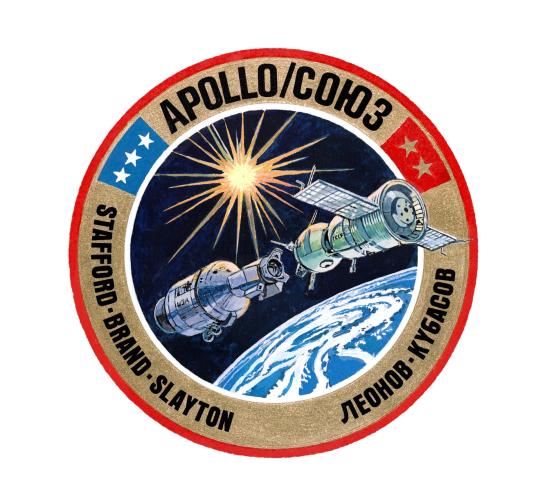
ISS Expedition 11
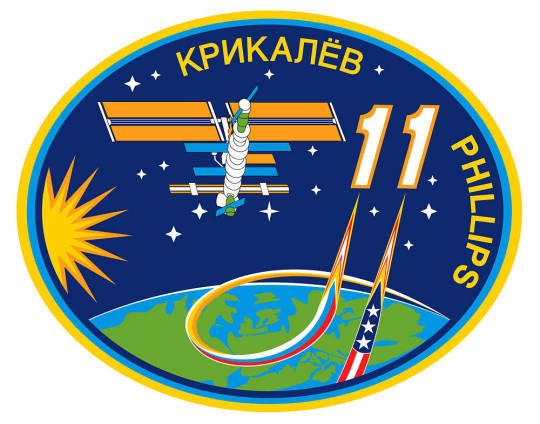
8 - fave space book
Two Sides of the Moon by David Scott and Alexei Leonov. I have a copy that is signed by both of them!!
15 - what food would you most want aboard?
Oooh that's a good question. I'd say some fresh fruit, raspberries maybe.
Space Asks!
#ask#asks#space exploration#astronaut#astronauts#nasa#soviet union#ussr#russia#cosmonaut#космонавт#kaiyves
3 notes
·
View notes
Text
Birthdays 1.17
Beer Birthdays
Benjamin Franklin (1706)
Ron Kloth (1959)
Jeff Mendel (1961)
Edu Villegas (1976)
Five Favorite Birthdays
Muhammed Ali; boxer (1942)
Jim Carrey; actor (1962)
Zooey Deschanel; actor, singer (1980)
James Earl Jones; actor (1931)
Betty White; actor (1922)
Famous Birthdays
Luis Alvarez; physicist (1911)
Naveen Andrews; actor (1969)
Noah Beery; actor (1883)
Anne Bronte; writer (1820)
Al Capone; gangster (1899)
David Caruso; actor (1956)
Troy Donahue; actor (1937)
Steve Earle; singer, songwriter (1955)
Leonhard Fuchs; German botanist (1501)
David Lloyd George; British politician (1863)
Steve Harvey; comedian (1957)
Susanna Hoffs; rock musician (1959)
Rock Hudson; actor (1925)
Andy Kaufman; comedian (1949)
Nora Kaye; dancer, ballerina (1920)
Robert F. Kennedy Jr.; environmental lawyer (1954)
Kid Rock; rock musician (1971)
Eartha Kitt; singer, actor (1927)
Shari Lewis; puppeteer (1933)
George Lyttelton; English writer (1709)
Vido Musso; jazz musician (1913)
Michelle Obama; first lady (1964)
Maury Povich; television talk show host (1933)
Vidal Sasson; cosmetologist (1928)
Mack Sennett; film director (1880)
Moira Shearer; ballerina (1926)
Thomas Stafford; astronaut (1930)
Konstantin Stanislavsky; actor, acting coach (1863)
Mick Taylor; rock guitarist (1948)
Paul Young; rock singer (1956)
1 note
·
View note
Text
PETROS KLAMPANIS – TORA COLLECTIVE FT. KRISTJAN RANDALU, ZIV RAVITZ & THOMAS MELETEAS Rising star of the double bass from New York mixes jazz with mediterranean influences.
youtube
Areti Ketime - voice Thomas Meleteas - oud Kristjan Randalu - piano Petros Klampanis - bass
Live-Rough-Mix by Christian Kaufmann, Mix by Petros Klampanis Video directed by Stephan Diethelm for #musigimpflegidach.
"Ξεχωρίσματα"
Αχ τώρα στα ξεχωρίσματα, ελα γιέ μου να φιληθούμε Αχ ελα γιέ μου να φιληθούμε
Ωχ γιατί έχουμε ζωή και θάνατο, ποιος ξέρει γιε μου κι ανταμωθούμε Αχ ποιος ξέρει αν θ’ ανταμωθούμε
Έλα που σε περιμένω, ταίρι μου ξενιτεμένο
Ωχ αυτού μακριά που βρίσκεσαι, αυτού γιέ μου στην Γερμανιά Αμέρικη και Αυστραλία
Ωχ στείλε μου το κορμάκι σου, σε μια γιέ μου φωτογραφία, Σε μια γιέ μου φωτογραφία
Με τ’ εσένα θέλω να ’μαι και στην Ήπειρο να πάμε, Για τ’ εσένα παίζουν τούτα τα βιολιά και τα λαούτα.
"Xehorísmata" by Petros Klampanis' "Tora Collective" (Enja/Yellowbird Records).
"Xehorísmata" is a folk song from Epirus, which is about immigration and longing.
Thomas Konstantinou - voice & oud Giorgos Kotsinis - clarinet Kristjan Randalu - piano Petros Klampanis - bass Ziv Ravitz - drums
Produced by Petros Klampanis & Ziv Ravitz Recorded by George Kariotis at Sierra Recording Studios, Athens Mastered by Christoph Stickel
Video by Antonis Kitsikis and Dimitris Lambridis
youtube
4 notes
·
View notes